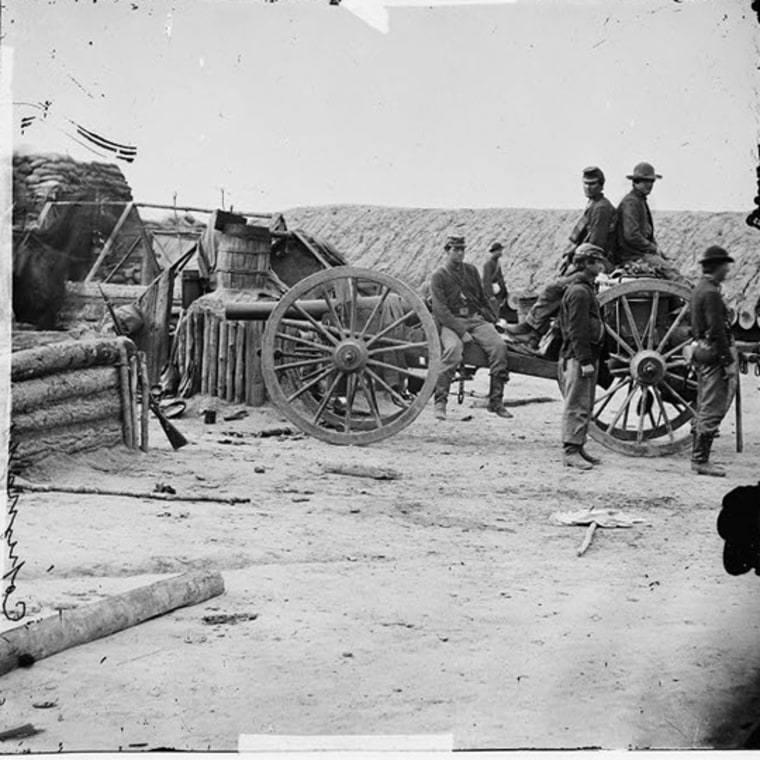The world's largest online collection of Civil War materials, including photographs, slave manifests and rare letters, has just been launched by Ancestry.com to commemorate the 200th anniversary of Abraham Lincoln's birthday.
The collection helps to document the lives of more than 12 million individuals affected by the Civil War. It reveals some harsh realities of the time, such as chronicling the movement of thousands of slaves to New Orleans to work in the booming cotton industry. It also sheds light on some of the women who, disgusted by slavery and desiring national unity, disguised themselves as men in order to fight in the war.
Gary Gibb, vice president for U.S. content at Ancestry.com said that, "we thought it was the perfect time to add these databases to our site and to help individuals discover their family members who lived during a time of such dramatic change in America."
Five new databases have been added to the company's already large Civil War collection. They include the Abraham Lincoln Papers from the Library of Congress, New Orleans slave manifests dating from 1807 to 1860, confederate pension applications from Georgia, confederate applications for presidential pardons, and U.S. Civil War soldier records, which contain more than 4.2 million materials that profile nearly every officer and soldier who fought in the Civil War.
The collection of more than 20,000 letters written to and from President Lincoln is especially revealing. Lincoln used to receive notes urging him to support white supremacy. The president's private secretary, John Nicolay, would fire back polite, yet cutting, replies.
For example, Nicolay once responded to once such individual, John McMahon of Pennsylvania, by informing him that if he were white or black "you cannot be regarded as an entirely impartial judge." He then added that McMahon might belong "to a third or fourth" social class, "in which case the impartiality of your judgment would be more apparent."
The collection also includes a letter written by Ellie Reno, believed to have been the niece of Union Army Major General Jesse Reno. Ellie, along with several other women, disguised themselves as men in order to enlist. When her true sex was revealed, she wrote to Lincoln begging him to allow her to continue to fight.
The letter, in part, reads, "I am the true blue and for that Noble Flag I am willing to die. I have been in the Army for nearly one year…I am willing to do anything…solely because I love liberty."
It is unknown if Reno's request was granted, but DeAnne Blanton, a senior military historian at the National Archives and Records Administration, said that in some cases, if men found out about women serving, they did not report them if the women were good soldiers. The Confederate Army, which also had women fighting in disguise, stopped sending them back home at around 1864, when they began to serve openly.
At least two other institutions are marking the anniversary of Lincoln's birthday with special exhibits and online offerings.
"With Malice to None," a new exhibit at the Library of Congress, allows visitors to view everything from the first draft of the emancipation proclamation, which freed the slaves, to the personal effects Lincoln was carrying with him on the night of April 14, 1865, when he was assassinated at Ford's Theater in Washington.
At the very same hour on that night, an accomplice of John Wilkes Booth attempted to assassinate Secretary of State William Seward. That brazen attempt by a man wielding a pistol in one hand and a knife in the other was unsuccessful.
Seward's daughter Fanny was an eyewitness. She documented the dramatic events in her diary, whose pages are now at the University of Rochester's Web site, "Lincoln and His Circle."
One entry, written after she found her injured father on the floor of her house, reads, "As I stood my feet slipped in a great pool of blood. Father looked so gastly (sic) I was sure he was dead, he was white and very thin with the blood that had drained from the gashes about his face and throat."
Library of Congress visitors can also view an item that played a more recent role in history: Lincoln's red, gold-trimmed personal Bible, which was used by President Obama when he took the oath of office on Jan. 20.
More on Civil War | Abraham Lincoln
